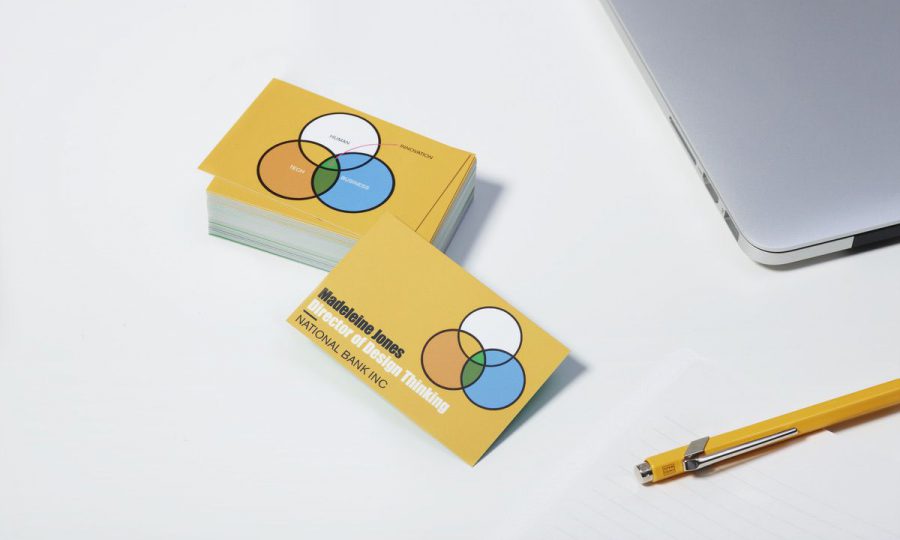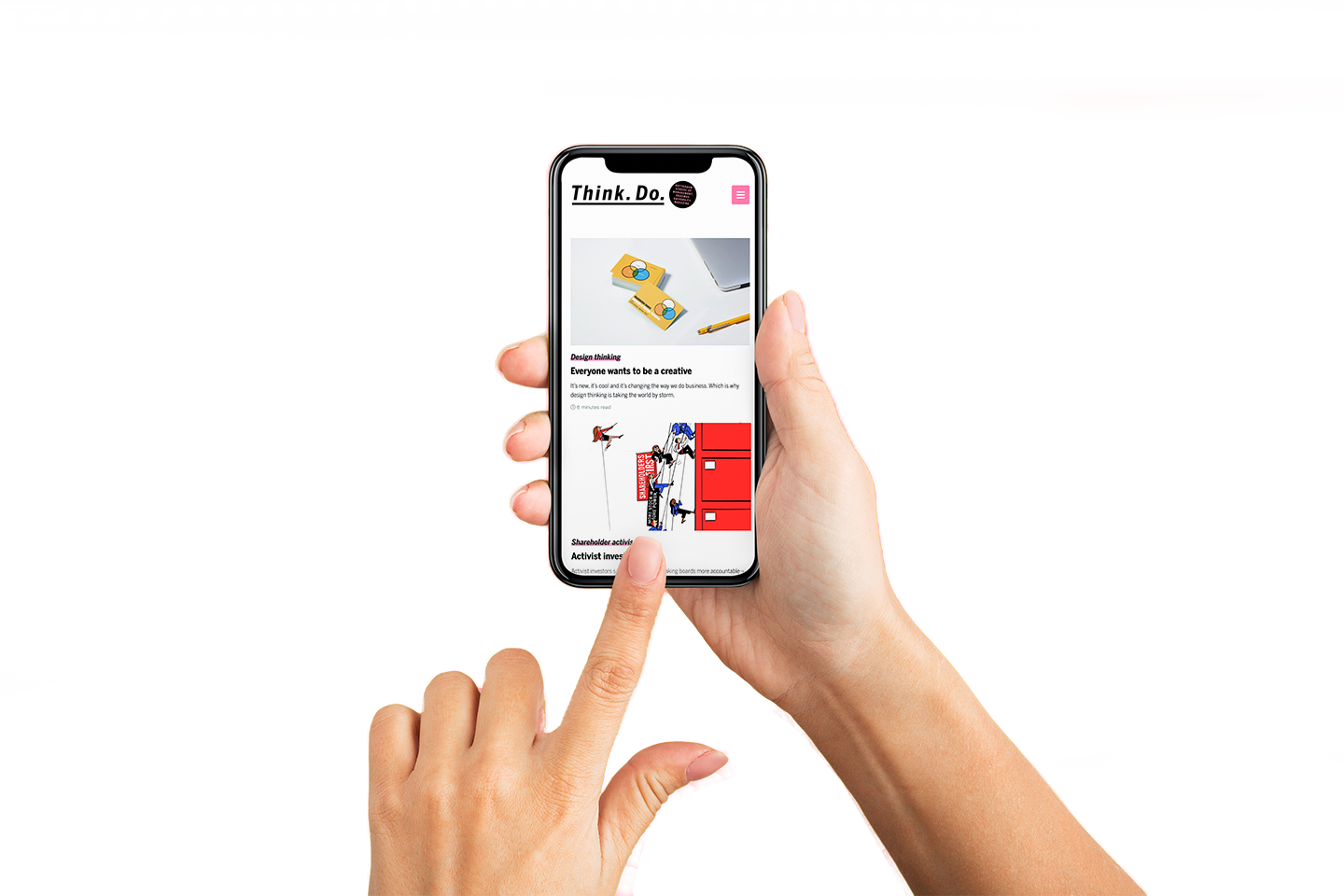Square peg. Round hole.
How much does ‘being yourself’ at work matter? New research suggests it could be what actually determines your success.

When it comes to deciding who to do business with, the research suggests that most of us take three things into account: warmth, competence and authenticity. Warmth and competence can be learned. But authenticity – the key ingredient when it comes to establishing trust – is a little bit more tricky.
In fact, from Socrates to Sartre, humanity has always struggled with the concept of the true self. Medieval Europeans measured authenticity in terms of doctrinal alignment with the church; 200 years later, Enlightenment thinkers measured their authenticity against their rationality. Today, in the 21st-century office, as the lines between our social and working lives become ever-more blurred, we are being urged to “bring our whole selves to work”.
And it’s easy to see why authenticity has become such a key concept: allowing us to be ourselves could make for a happier, more productive workforce. A recent study of 680 Dutch bank employees from Utrecht University found that high levels of authenticity (“employees’ ability to experience their true selves”) experienced by staff were related to high levels of work engagement, job satisfaction and job performance.
So, what exactly is authenticity in this context? Dr Hannes Leroy, Associate Professor at the Department of Organisation and Personnel Management, is investigating how the requirement for authenticity plays out within the workplace. At its most basic, he says, authenticity comes down to the same advice we give to children on their first day at school: be true to yourself.
Of course, even that simple definition doesn’t bear scrutiny. As Dr Leroy points out, the questions “What is your self?” and “And how can you stay true to it?” immediately spring to mind. And on closer inspection, it seems that when we talk about authenticity, what we are really highlighting is alignment. “Alignment, for example, between saying that you are interested in the environment and ensuring your behaviour reflects that interest,” Dr Leroy explains. “Most of our research is about some form of alignment between what’s happening inside the person and what they display to the outside world. Do you actually show your real feelings, or do you think your feelings? Do you engage in emotional labour or acting?”
In one of his studies, Dr Leroy’s group demonstrated that if you come across as authentic at a networking event, it increases the likelihood of walking away with the business card that gives you that crucial deal. “You can absolutely use authenticity for good,” he says. “If you feel authentic, you’re more likely to feel a sense of personal wellbeing. If you are perceived as authentic, you are going to have lot of power to influence others, as we like and listen to the people who are perceived as authentic. Whether or not we find someone real or fake will determine whether or not we want to keep doing business with them.”
Authenticity implies trust, as Dr Stefano Tasselli, Associate Professor at the Department of Technology and Operations Management, and Professor Martin Kilduff, Professor of Organisational Behaviour Management at University College London, recently demonstrated in their paper, When Brokerage between Friendship Cliques Endangers Trust: A Personality-Network Fit Perspective, published in the Academy of Management Journal. ‘Brokers’ – employees with friendships spanning two or more friendship groups or cliques – are expected by each clique to be honest and open, share confidences and keep disclosures confidential. Yet each group expects to be given priority when it comes to gossip and advice.
A broker, therefore, needs to be flexible, adjusting themselves to different people and situations. But those who are less flexible are more likely to win the trust of colleagues when the friendship structure involves a single clique. “The expression of authentic attitudes and behaviours, with little regard for impression management, is regarded favourably within a single group of like-minded individuals,” says Tasselli.
And a culture that discourages authenticity can have a stultifying effect on diversity in the workplace – and all the bene fits that brings. The 2013 Deloitte University Leadership Center for Inclusion report, Uncovering Talent, revealed that 61 per cent of all employees “cover” their identities in some way. Respondents revealed a wide spectrum of “covering” techniques: not using a cane, avoiding speaking about their military background, rejecting clothes because they looked “too gay”, not revealing their true age and not participating in activities geared towards their ethnic community.
Asking why inclusion programmes in the US seemed to have stalled, authors Dr Christie Smith and Kenji Yoshino posited that diversity initiatives hadn’t addressed the pressure that employees are under to keep their true selves under wraps. Why, for example, would a gay person work for a company where they didn’t feel able to reveal their sexuality?
Whether we think someone seems ‘real’ or ‘fake’ determines our desire to do business with them
“The ideal of inclusion has long been to allow individuals to bring their authentic selves to work,” they wrote. “However, most inclusion efforts have not explicitly and rigorously addressed the pressure to conform that prevents individuals from realising that ideal.” And, they added, being “authentic” doesn’t necessarily mean being part of a minority, either. “Indeed, given that everyone has an authentic self, a culture of greater authenticity may well benefit all individuals, including the straight, white men who have traditionally been left out of the inclusion paradigm.”
Yet just how authentic does the workplace really allow us – or want us – to be? Dr Leroy recently co-authored Being Your True Self at Work: Integrating the Fragmented Research on Authenticity in Organizations, published in the Academy of Management Annals. It asked a simple question: is “just be yourself” good advice in the work environment? The answer: it all depends on who is evaluating whether you’re just being yourself. If others evaluate you as somebody who is authentic, that’s a good thing. “But there’s the challenge; that’s often not how people deal with others,” Dr Leroy points out: “If I give this advice to you, you won’t be thinking: ‘I need other people to perceive me as authentic’. You’ll be thinking: ‘I need to feel authentic’. But in many studies, we have found a negative correlation between feeling authentic and being perceived as authentic.”
This, he says, puts the entire authenticity movement and the advice to “be yourself” in jeopardy. “There is a whole coaching and leadership development industry built on this idea of ‘just be yourself’. Who wouldn’t love to go to training like that? But, unfortunately, reality is a lot more complex. The feeling of being authentic can mean that you are perceived as even less authentic, with all its negative consequences.”
Take the colleague who expresses his love and care for the environment. He recycles every piece of paper, brings his own hand-baked bread for lunch, cycles religiously and has given up flying. Rather than celebrating his commitment, we are more likely to start monitoring him. Perhaps he leaves his computer on. Perhaps he has shares in a fossil-fuel company.
“Now, he’s put a target on his back,” says Dr Leroy. “We didn’t care what he thought about the environment beforehand. But now we are monitoring him – and, of course, we are going to find discrepancies.” Fundamental attribution bias means he has no escape. Perhaps we spot the passionate environmentalist throwing away a perfectly good piece of paper. He explains: it was an accident, he is having a stressful day. But now he is not just inauthentic; he is a hypocrite. “We have values, but we are not always able to stay true to them,” says Dr Leroy. “And if you think you are true to your values, others can think that you believe you are better than them. And they will want to prove to you that that isn’t true.”
It’s hard not to sympathise with the fervent environmentalist’s frustration, faced with a culture that demands authenticity, then fails to reward it. But, says Dr Leroy, we should still be ourselves at work. Just not too much. “Don’t forget: who you are is multifaceted,” he says. “So, when you’re talking to this new client, maybe listen to what this person is interested in and represent that aspect of yourself that is more in line with this person.
“You won’t be inauthentic. You’re just choosing to exercise political skills: knowing who your audience is and translating your message in such a way that your audience understands. Be authentic, but be smart about it. I often refer to the Nike campaign, Just Do It. The idea is that you put on running shoes and you go out and run. Well, a lot of people get injuries if they’ve not thought about how they run. Authenticity is just the same.”
Find out more about Dr Hannes Leroy’s work on authentic leadership and how to develop it.



